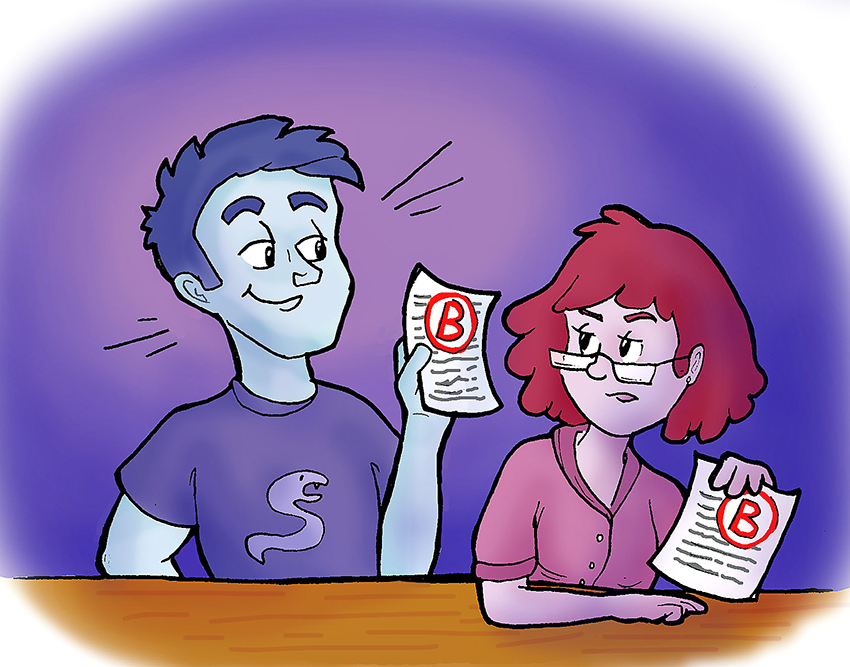Male students are more likely than female students to underestimate the strengths of their female classmates despite their similar grades, according to a recent study.
Sarah Eddy, now a research analyst in the College of Natural Sciences, spent three years investigating the role gender played in students’ perception of each other in their biology classes at the University of Washington with Daniel Grunspan, an anthropology doctoral candidate at UW. The data from the study demonstrates an implicit bias against women in science.
Although women are represented in science careers and majors, discrimination still exists as unconscious bias, Eddy said.
“There is an association between science and maleness,” Eddy said. “We get messages about who is a legitimate scientist starting when we’re very little kids … and they impact things. None of us want to discriminate, but there are these messages at the back of our brain that influence our decisions and we don’t even know it.”
Bias against women in science, engineering, technology and math can follow individuals from the classroom to the workplace. Biology senior lecturer Jen Moon said she doesn’t notice gender playing a large role in the education of biology students at UT, although she can see gender’s influence in how her students perceive her.
“The attitude can be different because if you’re a woman, then you can be seen as more of a mother figure and less of a professional scientist,” Moon said. “I don’t know if it’s necessarily bad or good, but it does happen.”
Sexism may play a stronger role in STEM fields with less female representation, Eddy said. Computer science juniors Sarah Gorring and Apurva Gorti said negative stereotypes against women are present in their male-dominated major, and they are difficult to overcome.
“Even though it may not be outwardly stated, you can tell there’s kind of an air of [sexism] in this department, especially because there’s not a lot of women,” Gorring said. “It’s definitely a struggle. You just have to know your own worth and also find other people who see your intelligence.”
Both Gorring and Gorti said a support system can make it easier to succeed despite sexism.
“There are so many organizations here at UT like Women in Engineering and Women in Computer Science, and having that group of people who know what you’re going through … is really important,” Gorti said.















